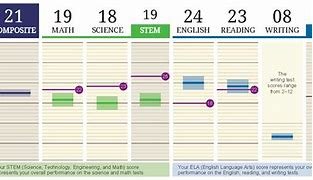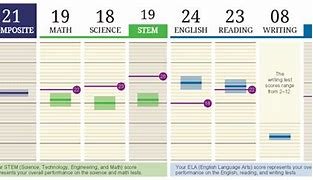
Okay, here’s a draft for an introductory paragraph for a SEO-friendly article about ACT scores:
Draft:
The ACT is a standardized test that’s widely used for college admissions in the United States. But with a wide range of scores possible , what’s actually considered a good score? It’s a question many students & parents ask, and the answer isn’t as simple as you might think. There’s no single magic number that guarantees acceptance to every college , and the “good” score will vary depending on the school’s admissions standards, your major , & even the year you’re applying!
For instance, a school known for academic rigor like MIT might expect scores significantly higher than a state university in your home state. But even within a single college , there’s room for variation, as the admissions committee looks at the whole applicant: grades, extracurriculars , letters of recommendation , and more.
So, instead of obsessing over one specific ACT number, focus on achieving the best score you can while ensuring it’s a reflection of your skills and preparation. This approach is far more strategic than chasing an arbitrary “good score” because it will better equip you to reach your college goals.
Related Post : rip me out the plastic i been acting brand new
What is a Good ACT Composite Score?
The ACT is a standardized test used for college admissions in the United States. It’s a crucial part of the application process, and many students wonder what constitutes a good ACT score. In this article, we’ll explore everything you need to know about the ACT composite score, including how it’s calculated, what constitutes a good score, and how to improve your own score.
What is the ACT?
The ACT is a multiple-choice, pencil-and-paper test that assesses a student’s readiness for college-level coursework. It’s administered by ACT, Inc., a non-profit organization.
What does ACT stand for?
ACT stands for “American College Testing.”
What does the ACT test?
The ACT test covers four main subject areas:
- English: Evaluates grammar, punctuation, and writing skills.
- Mathematics: Tests your understanding of pre-algebra, algebra, geometry, and trigonometry.
- Reading: Measures your ability to comprehend and analyze written passages.
- Science: Assesses your ability to interpret scientific data, analyze experimental outcomes, and draw conclusions.
What are the sections of the ACT?
The ACT is divided into four sections, each scored out of 36 points:
- English (75 querys, 45 minutes): This section assesses your grammar, punctuation, and writing skills.
- Mathematics (60 querys, 60 minutes): This section tests your understanding of pre-algebra, algebra, geometry, and trigonometry.
- Reading (40 querys, 35 minutes): This section measures your ability to comprehend and analyze written passages.
- Science (40 querys, 35 minutes): This section assesses your ability to interpret scientific data, analyze experimental outcomes, and draw conclusions.
How is the ACT scored?
Each section of the ACT is scored on a scale of 1-36. The score is based on the number of correct answers. There is no penalty for incorrect answers.
What is the ACT composite score?
The ACT composite score is the average of your scores on the four subject sections. This score is a single number that represents your overall performance on the ACT.
How does the ACT composite score work?
The ACT composite score is calculated by adding up your scores on the four subject sections and dividing by four. For example, if you scored 28 on English, 30 on Math, 26 on Reading, and 29 on Science, your composite score would be (28+30+26+29)/4 = 28.25.
What is a Good ACT Score?
A “good” ACT score is relative and depends on several factors, including:
- The specific college you’re applying to: varied colleges have varied ACT score expectations.
- Your academic objectives: Your target score should align with your desired major and level of academic challenge.
- Your overall profile: Your ACT score is just one facet of your college application, and other factors, like GPA, extracurricular activities, and essays, are also considered.
What is a good ACT composite score?
A good ACT composite score generally scopes from 24 to 32. This scope reflects the typical scores of achievementful college applicants. However, it’s essential to study the specific colleges you’re interested in and their average ACT scores.
What is a good ACT score for college?
A good ACT score for college depends on the specific college you’re applying to. Some colleges may have a minimum ACT score requirement, while others may not. However, a score of 24 or higher is generally considered a good score for most colleges.
What is a good ACT score for specific colleges?
To find the average ACT score for specific colleges, you can use resources like:
- College websites: Most college websites offer information about their average ACT scores.
- College admissions offices: You can contact the admissions office of your desired colleges to inquire about their average ACT scores.
- Online college search websites: Websites like US News & World Report and CollegeBoard offer average ACT scores for various colleges.
What are the average ACT scores for colleges?
The average ACT scores for colleges vary significantly. Here are some general scopes to consider:
- Top colleges: The average ACT scores for top colleges are typically in the scope of 30 to 34.
- State colleges: The average ACT scores for state colleges are generally in the scope of 20 to 26.
How can you find the average ACT scores for colleges?
You can find the average ACT scores for colleges by:
- Visiting college websites: Most college websites offer information about their average ACT scores.
- Contacting college admissions offices: You can contact the admissions office of your desired colleges to inquire about their average ACT scores.
- Using online college search websites: Websites like US News & World Report and CollegeBoard offer average ACT scores for various colleges.
How to Improve Your ACT Score
If you want to improve your ACT score, there are several strategies you can implement:
What are some tips for improving your ACT score?
- Take practice tests: Familiarize yourself with the test format and text by taking practice tests.
- determine your weaknesses: Analyze your practice test outcomes to determine areas where you need to improve.
- Study strategically: Focus your study time on the areas where you need the most improvement.
- Take a prep course: Consider enrolling in an ACT prep course to receive personalized instruction and guidance.
- Get enough sleep: Make sure you’re well-rested on the day of the test.
- Eat a healthy breakfast: Fuel your brain with a nutritious meal before the test.
- Stay calm and focused: Avoid anxiety and focus on your optimal performance.
How can you study for the ACT?
- Review your notes: Review your notes from your high school courses to refresh your knowledge of the material covered on the ACT.
- Use practice querys: Use practice querys to test your understanding of the ACT material.
- Utilize study guides: Use study guides to help you focus your studying and learn new ideas.
- Get help from a tutor: Consider working with a tutor to receive personalized instruction and support.
What are some good ACT prep resources?
- Kaplan: Kaplan offers online courses, study guides, and practice tests.
- Princeton Review: Princeton Review offers thorough ACT prep materials, including practice tests and online courses.
- Khan Academy: Khan Academy offers complimentary ACT prep resources, including practice querys and videos.
What are some ACT practice test resources?
- The Official ACT Prep Guide: The Official ACT Prep Guide is a thorough resource that includes practice tests, study tips, and information about the ACT.
- ACT website: The ACT website offers complimentary practice tests and study tips.
- Online practice test websites: There are several online websites that offer complimentary and paid access-based ACT practice tests.
What are some common ACT mistakes to avoid?
- Not pacing yourself: Make sure you allocate enough time for each section of the test.
- Guessing randomly: Avoid guessing randomly. Only guess if you can eliminate some of the answer choices.
- Skipping querys: Don’t skip querys unless you’re completely stuck. Try to answer every query, even if you’re not sure of the answer.
- Not reading the directions carefully: Make sure you read the directions carefully before answering each query.
- Making careless mistakes: Double-check your answers to avoid making careless mistakes.
What to Do If You Don't Get a Good ACT Score
Don’t worry if you don’t get the ACT score you’re hoping for. There are several things you can do:
What if you don't get a good ACT score?
- Retake the test: You can retake the ACT as many times as you want.
- Focus on other areas of your application: If your ACT score isn’t as high as you’d like, focus on other facets of your application, such as your GPA, extracurricular activities, and essays.
- Consider applying to colleges with lower ACT score requirements: Many colleges have lower ACT score requirements than others.
- Apply for financial aid: If you don’t get the financial aid package you’re hoping for, you can apply for additional financial aid.
Can you retake the ACT?
Yes, you can retake the ACT as many times as you want.
How many times can you retake the ACT?
There is no limit to how many times you can retake the ACT.
When is the optimal time to retake the ACT?
The optimal time to retake the ACT depends on your individual circumstances. If you have time before the application deadlines, you can retake the test to try to improve your score.
What are some other factors colleges consider besides ACT scores?
Colleges consider a variety of factors when making admissions decisions, including:
- GPA: Your grade point average (GPA) is a significant indicator of your academic performance.
- Extracurricular activities: Colleges look for students who are involved in extracurricular activities, such as sports, clubs, and community service.
- Essays: Your essays are an chance to showcase your personality, interests, and objectives.
- Letters of recommendation: Letters of recommendation from teachers, counselors, or mentors can offer insights into your character and abilities.
- Demonstrated interest: Colleges often look for students who have shown interest in their institution, such as visiting the campus or attending online events.
Conclusion
The ACT is an crucial part of the college admissions process, and a good ACT composite score can give you a rival edge. However, it’s crucial to remember that your ACT score is just one piece of the puzzle. By focusing on your academic performance, extracurricular activities, and essays, you can create a well-rounded application that will impress college admissions officers.
What is the optimal way to get a good ACT score?
The optimal way to get a good ACT score is to prepare thoroughly. This means taking practice tests, determineing your weaknesses, studying strategically, and using resources like study guides and prep courses.
What is the importance of the ACT score in college admissions?
The ACT score is a significant factor in college admissions. It offers colleges with a standardized measure of your academic readiness for college-level coursework.
What are some final thoughts about the ACT composite score?
The ACT composite score is a valuable tool for colleges to evaluate students. It offers a standardized way to compare students from varied high schools and backgrounds. However, it’s crucial to remember that the ACT composite score is just one factor that colleges consider when making admissions decisions. Your overall application, including your GPA, extracurricular activities, essays, and letters of recommendation, is also crucial.

Leave a Reply